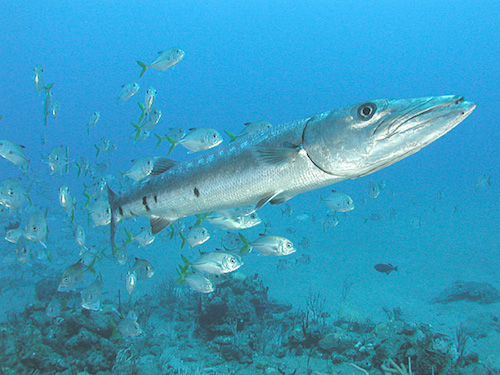 Culture & Ethics
Culture & Ethics
Now They Say We Shouldn’t Eat Fish!

The New York Times obsessively publishes columns in its opinion section and Magazine trying to convince us that humans are not unique, and moreover, that we shouldn’t eat meat, that plants are the most “ethical” life form, etc. beyond etc.
Now the same source tells us that, in essence, we shouldn’t eat fish because, well, “Fishes Have Feelings Too“:
As innovative research reveals new facets of the private lives of fishes [!!!], I’m hopeful that perceptions will change and we’ll show them more mercy. The simplest way to help fishes is to reduce our consumption of them and to source what we do eat from suppliers that adhere to animal welfare standards. As the oceanographer Sylvia Earle, who, like me, no longer eats fish, says, “The ocean has given us so much for so long, it’s time for us to return the favor.”
Right, leave all that nutritious food for the seals, sharks, and barracudas, which (not who) will be so much more humane than we are.
The piece is authored by Jonathan Balcombe, director of the Humane Society Institute for Science and Policy. I wouldn’t trust anything Balcombe advocates. His institute is part of the Humane Society of the United States (HSUS) — a deeply ideological organization that pretends to be about animal welfare, but is really a full-bore (if stealth) animal rights group — that spends tens of millions a year making life miserable for farmers, ranchers, animal researchers, and others.
Animal rights believers eventually want to put an end to all animal domestication. For example, HSUS’s leader, Wayne Pacelle, once said in an interview for a book, Bloodties, that he would rather that no more cats or dogs ever be born:
“If I had my personal view perhaps that might take hold. In fact, I don’t want to see another cat or dog born. It’s not something I strive for, though. If people were very responsible, and didn’t do manipulative breeding, and cared for animals in all senses, and accounted for their nutritional needs as well as their social and psychological needs, then I think it could be an appropriate thing.
I’m not sure. I think it’s one of those things that we’ll decide later in society. I think we’re still far from it.” [Emphasis added, p. 266.]
Opposing cats and dogs would cut down on HSUS’s donations, so of course, they don’t push this meme. But they do urge us to make our dogs vegan! Isn’t it interesting that those who claim the loudest that we aren’t special keep trying to convince us that animals, fish, plants — whatever — are really people too.
This I know. There is no mercy among fishes. They just want to fill their own bellies. Only we care about treating animals humanely — as we should. And that’s one of the attributes of humanity that make us exceptional.
Meanwhile, in the same section of the newspaper, Nicholas Kristof praises Pacelle. Of course he does!
Photo: Barracuda accompanied by jacks, by Aquaimages [CC BY-SA 2.5], via Wikimedia Commons.
